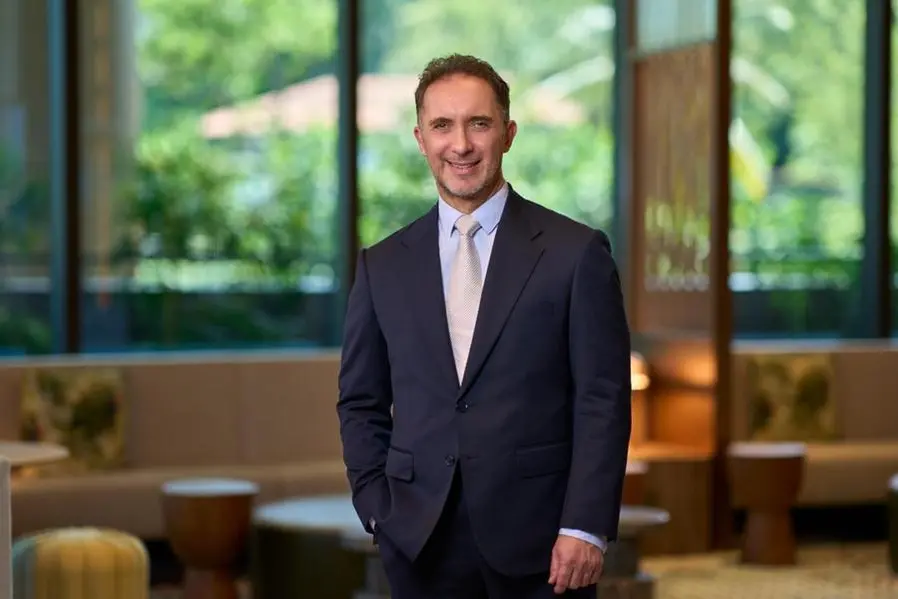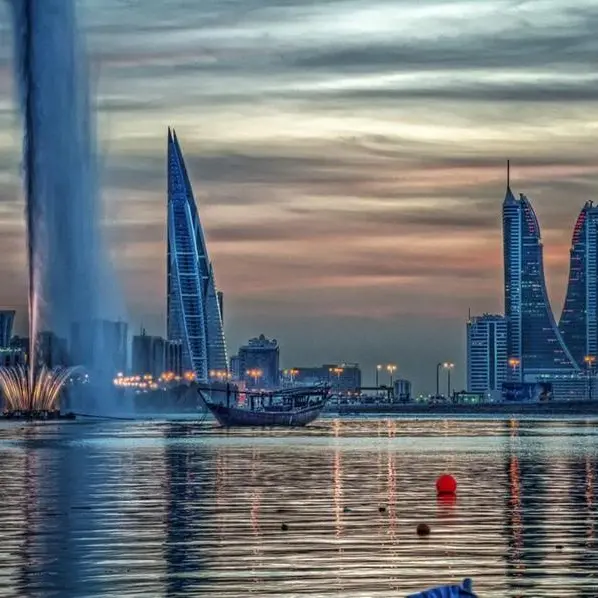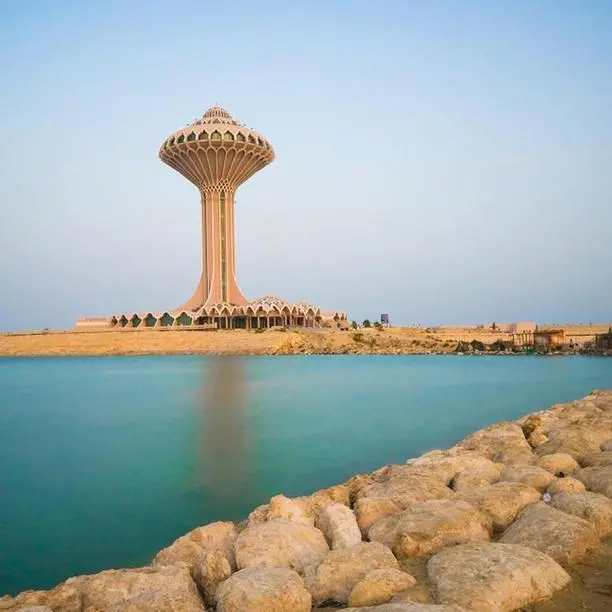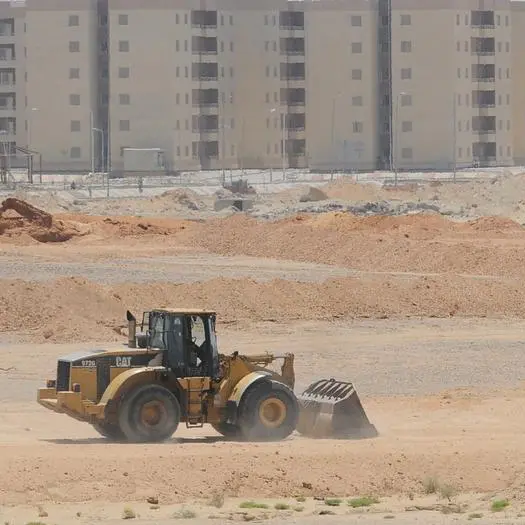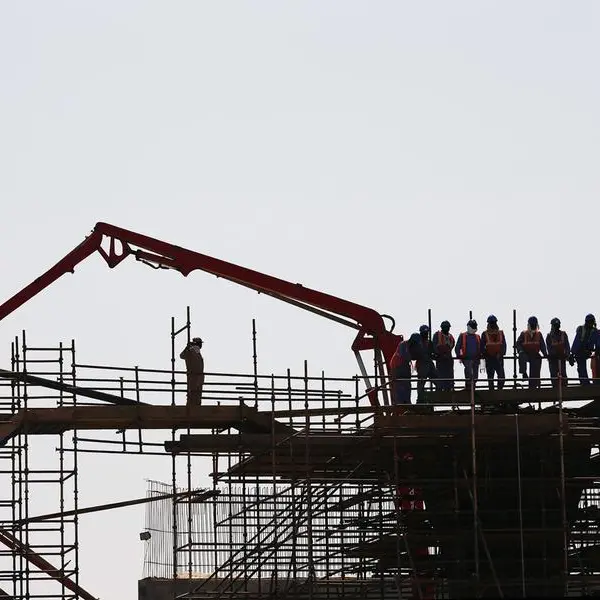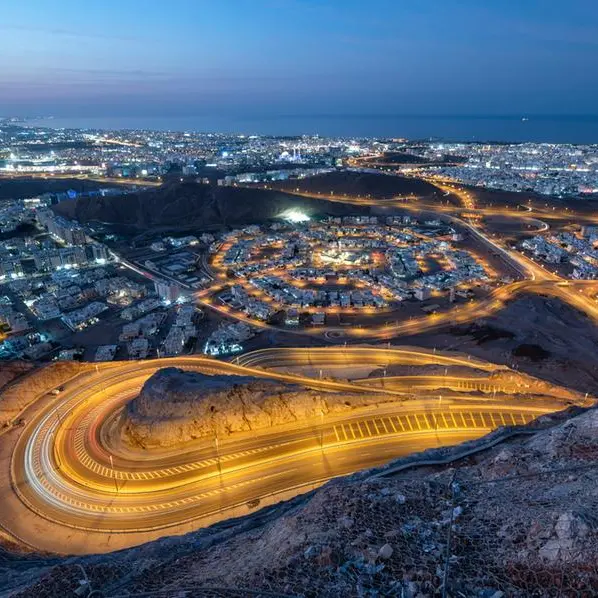PHOTO
Global hospitality operator Ascott is aiming for a 20 percent annual growth rate in the Middle East, Africa, and Turkey (MEAT) region over the next five years, with the goal of reaching 15,000 units in operation or under development by 2030, Managing Director for MEAT Vincent Miccolis told Zawya Projects.
A wholly owned unit of Singapore-headquartered CapitaLand Investment (CLI), Ascott currently operates 15 properties in the region and has 27 more in the pipeline, representing approximately 6,000 units.
Speaking on the side-lines of ATM 2025 in Dubai, Miccolis said the 40-year old company has evolved beyond its traditional serviced apartment model to address the post-pandemic demand for hybrid and flexible accommodation.
Ascott’s 14-brand portfolio, built through a mix of acquisitions and in-house brands, allows the company to cater to a wide range of owners, from the traditional hotel to mid-scale to upscale, upper upscale and luxury properties.
“Our latest evolution is as a multi-typology brand… meaning we can cater for hotels, or service apartments, or student accommodation. This flexibility between short and long stays allows us to serve a wide range of clientele, from families and business travellers to digital nomads,” he explained.
Ascott contributes to CLI’s fee-related earnings through operations, and by managing investment vehicles such as CapitaLand Ascott Trust (CLAS) and private funds. Globally, it is working toward a fee revenue target of SGD 600 million by 2028, with MEA and India expected to account for a significant share of that growth.
Middle East growth
The company’s Middle East expansion is focused on Saudi Arabia and the UAE.
“In the UAE, we aim to add 3,000 units by 2030, primarily in Dubai, Abu Dhabi, and Ras Al Khaimah,” said Miccolis.
Last week, Ascott signed an agreement with UAE-based developer FAM Holding to operate a luxury resort on Marjan Island, Ras Al Khaimah. The 540-key Al Mahra Resort by The Crest Collection is set to open in the first quarter of 2027.
In Saudi Arabia, the company intends scaling operations across Riyadh, Jeddah, Makkah, Madinah, supported by upcoming openings such as Ascott Villas Riyadh, an upper-upscale living concept with 90 villas set to launch in the third quarter of 2025 and the recent signing of a The Crest Collection hotel located on King Fahd Road in Riyadh. Ascott’s Saudi portfolio currently includes two properties in Al Khobar and one in Riyadh.
Miccolis also revealed a partnership with Saudi Arabia's Public Investment Fund (PIF), noting that a new standardised fee platform established by the sovereign fund for hospitality players is streamlining negotiations and speeding up project execution.
“We expect to announce major signings in Saudi Arabia with some of the giga-projects in this quarter,” he said.
Ascott is also eyeing second-tier cities in the Kingdom like Jubail, building on the success in Abha, the capital of Aseer province, where it currently operates a 140-key upper mid-scale Citadines property in partnership with Almutlaq Real Estate Investment Company (AREIC).
“With all the projects happening in Saudi Arabia, we expect our Middle East market to be 60-70 percent Saudi and 40-30 percent UAE,” he said.
Africa expansion
In Africa, Ascott is focusing on Morocco—where it already operates around 600 units, primarily under the Citadines brand. In Kenya, the company is targeting Nairobi, with one property currently operational and three more in the development pipeline. Other countries on the radar include Egypt, Ethiopia, Djibouti and South Africa.
“We are in talks with investors in Egypt, and have finalised some leads in Ethiopia. In June, we will be going to South Africa,” he said.
Meeting changing travel patterns
With global travel trends increasingly affected by geopolitical conflicts and trade tariffs, a growing number of leisure and business travellers from Europe, Canada, and Asia are choosing to travel to—or even relocate to—the Middle East.
“These guests aren’t necessarily looking for hotels—they’re seeking accommodations with enough space to work, play, and unwind, often with kitchen amenities,” said Miccolis. “Our multi-typology and flex-hybrid model is ideally suited to meet those preferences.”
Ascott’s flexible hospitality model allows for conversion between short- and long-stay formats, which, the Ascott executive said, enhances asset resilience by maintaining occupancy during periods of softer demand. The average length of stay for long-term guests is around two weeks.
“When we talk to asset owners, we tell them they need this type of [flexible hybrid] accommodation in their portfolio because it is more resilient than a normal hotel,” he noted.
“At exit - whether in 10 or 15 years - they can convert these assets into residential units, sell individually or in bulk or repurpose them many ways; whereas if you build only a hotel, the asset will always remain a hotel.”
Miccolis added that the same mind-set guides investment approach of CLAS, the investment vehicle it manages, with emphasis on asset evolution, resilience and exit strategy.
“These are the same discussions we have with our asset owners,” he said.
The Ascott executive said asset optimisation is central to Ascott’s operating model, thanks to its strong real estate DNA. The company actively engages with asset owners and partners from the early stages, contributing to design, room layouts, and inventory planning to optimise space and maximise long-term value.
In terms of brand localisation, Ascott applies soft elements of the brand consistently across regions, he explained, with adjustments made to features like room size and structure to suit local market preferences.
CLI’s plans for the region
CapitaLand Investment has been exploring opportunities in the region with Temasek Holdings, Singapore’s state-owned investment company, according to Miccolis,
While lodging may not be the initial entry point, CLI is particularly strong in sectors like logistics parks, which could be a focus area, he noted.
CLI’s largest shareholder is CapitaLand Group (CLG), a wholly owned subsidiary of CLA Real Estate Holding, which is ultimately owned by Temasek.
Without revealing too much, I can say they are considering multiple avenues—but not necessarily in lodging at this stage,” he said.
For Ascott, though, the strategy remains rooted in an asset-light model.
“Globally, only about 15–20 percent of our portfolio is owned; the rest operates under an asset-light structure,” he said. “This model enables faster growth—whether through strategic acquisitions like Citadines and Oakwood, or through management contracts and franchise agreements.”
Looking ahead, Ascott sees a significant opportunity to introduce its experience-led social living concept, lyf, to the Middle East for the first time. The concept has been successfully implemented in Singapore, Bangkok, London, Tokyo, and soon Paris.
“Bringing lyf to the Middle East would not only diversify the regional hospitality landscape but also offer owners and investors a highly efficient, future-focused model,” said Miccolis.
The company is targeting to sign 150 lyf properties globally by 2030 and sees great potential for many of these to be in the MEAT region, he concluded.
(Reporting by Anoop Menon; Editing by SA Kader)
Subscribe to our Projects' PULSE newsletter that brings you trustworthy news, updates and insights on project activities, developments, and partnerships across sectors in the Middle East and Africa.
